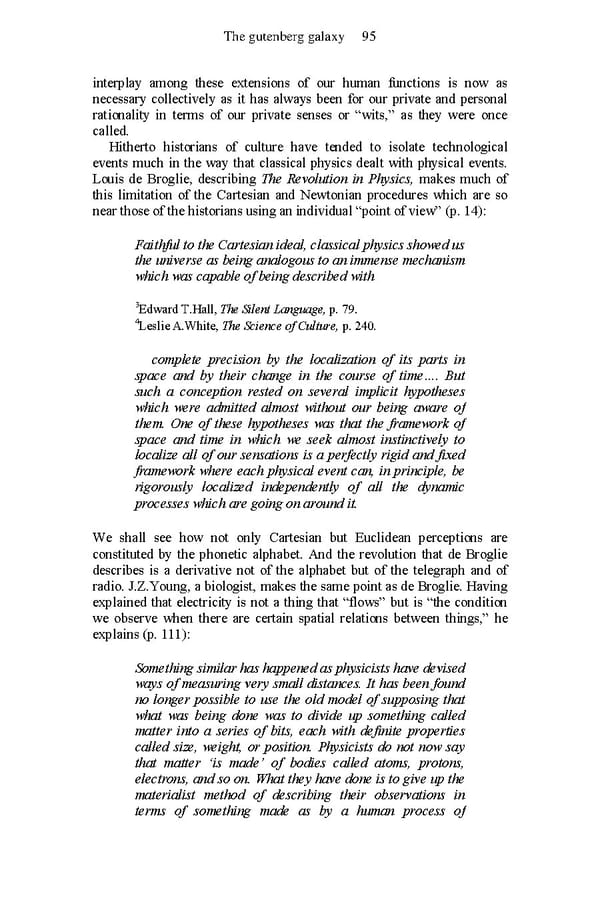The gutenberg galaxy 95 interplay among these extensions of our human functions is now as necessary collectively as it has always been for our private and personal rationality in terms of our private senses or “wits,” as they were once called. Hitherto historians of culture have tended to isolate technological events much in the way that classical physics dealt with physical events. Louis de Broglie, describing The Revolution in Physics, makes much of this limitation of the Cartesian and Newtonian procedures which are so near those of the historians using an individual “point of view” (p. 14): Faithful to the Cartesian ideal, classical physics showed us the universe as being analogous to an immense mechanism which was capable of being described with 3 Edward T.Hall, The Silent Language, p. 79. 4 Leslie A.White, The Science of Culture, p. 240. complete precision by the localization of its parts in space and by their change in the course of time…. But such a conception rested on several implicit hypotheses which were admitted almost without our being aware of them. One of these hypotheses was that the framework of space and time in which we seek almost instinctively to localize all of our sensations is a perfectly rigid and fixed framework where each physical event can, in principle, be rigorously localized independently of all the dynamic processes which are going on around it. We shall see how not only Cartesian but Euclidean perceptions are constituted by the phonetic alphabet. And the revolution that de Broglie describes is a derivative not of the alphabet but of the telegraph and of radio. J.Z.Young, a biologist, makes the same point as de Broglie. Having explained that electricity is not a thing that “flows” but is “the condition we observe when there are certain spatial relations between things,” he explains (p. 111): Something similar has happened as physicists have devised ways of measuring very small distances. It has been found no longer possible to use the old model of supposing that what was being done was to divide up something called matter into a series of bits, each with definite properties called size, weight, or position. Physicists do not now say that matter ‘is made’ of bodies called atoms, protons, electrons, and so on. What they have done is to give up the materialist method of describing their observations in terms of something made as by a human process of
 Essential McLuhan Page 101 Page 103
Essential McLuhan Page 101 Page 103